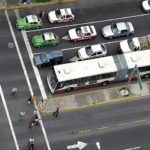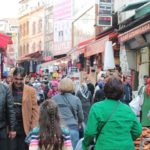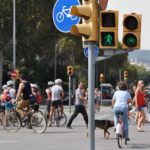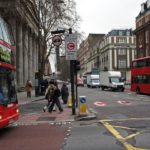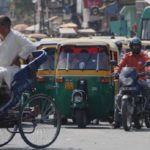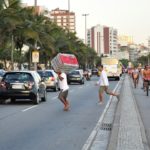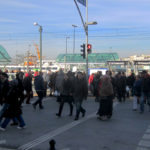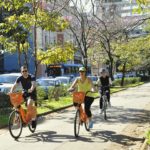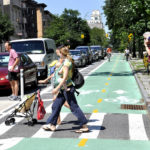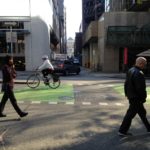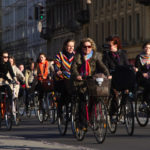Search Results for 'traffic calming'
Traffic accidents kill more than 1.2 million people every year, nearly the same amount that die from HIV/AIDS. But there’s an undervalued approach to making the world’s roads safer—good urban design. While most traffic safety initiatives tend to focus on ...

Motorized vehicle emissions are a primary cause of air pollution and yield some of the most adverse impacts on public health. According to the World Health Organization (WHO), exposure to heavy traffic—even living near a major road—harms health and increases ...

In cities around the world, urban residents want to live well, with access to jobs, education, healthcare and public space. However, because many of our current practices are inflicting burdensome social and economic costs on our cities, we need to increase ...

In 2003, London adopted a program of congestion pricing that now places a roughly $17 (£11.50) daily fee on motor vehicles entering central London. The effort was expected to reduce car traffic, air pollution, and emissions in the area, and ...

Is biking more on your list of resolutions for 2015? If so, you have probably considered what to do to be safer while biking in the city. Around the world, new policies and innovative technologies are being developed to support ...

Cities worldwide face the pressing challenge of growing motorcycle fleets and remarkable increases in related traffic fatalities. With streets ill-prepared and motor-bikes whizzing in every direction, the scene might best be described as urban transport anarchy. The problem is especially ...

The streets of La Paz, Bolivia present severe risks for pedestrians. The country’s capital faces rising demand for cars, and has inadequate traffic signs and universally accessible pedestrian infrastructure. According to the World Health Organization (WHO), the traffic fatality rate ...

With the next few decades expected to witness to Asia’s swift rise in economic and political influence, the eyes of the world have focused on Asian cities as the engines of this growth. Last month’s Asian Development Bank Transport Forum ...

Rio de Janeiro is breathtaking. It just takes a walk along the boardwalk of the Copacabana and Ipanema beaches, for example, to be completely absorbed by the city’s natural beauty and the thousands of people enjoying these sites. There you ...

Pedestrians hit by vehicles when crossing on red are 56% more likely to be severely injured than those crossing on green. While crossing on red is often assumed to be mainly an issue of poor individual pedestrian behavior, recent research ...

The “People-oriented Cities” series – exclusive to TheCityFix and Insights – explores how cities can become more sustainable and livable through transit-oriented development (TOD). The nine-part series addresses different urban design techniques and trends that reorient cities around people rather ...

According to the World Health Organization’s (WHO) Global status report on road safety 2013, only 7% of the world’s population is governed by comprehensive road safety laws. In a world that already sees 1.24 million deaths from traffic crashes each ...

Three weeks ago I had the pleasure of representing EMBARQ at the International Women’s Forum (IWF) in Vancouver, Canada. The event focused on modern movements shaping the world, including trends influencing our lives, communities, and future. Since urban transport is ...

Urban streets are getting a makeover. In many cities worldwide, bike share stations have usurped parking for private vehicles. Protected bike lanes are replacing traffic lanes, while the unwieldy, barren intersections of yesteryear are being reinvigorated as vibrant plazas for ...

Cyclists ride in Copenhagen, the second most bike-friendly city in the world. Photo by Copenhagenize Design Co. Last month, Copenhagenize Design Co., a consulting firm specializing in bicycle advocacy, announced their ranking of the 20 most bicycle-friendly cities in the ...







